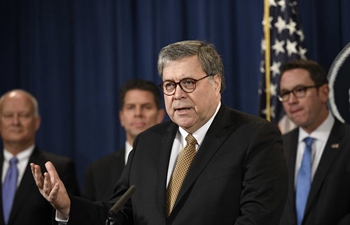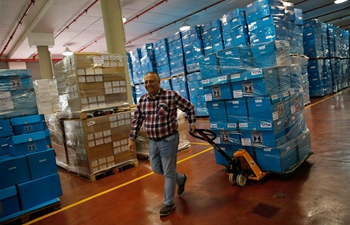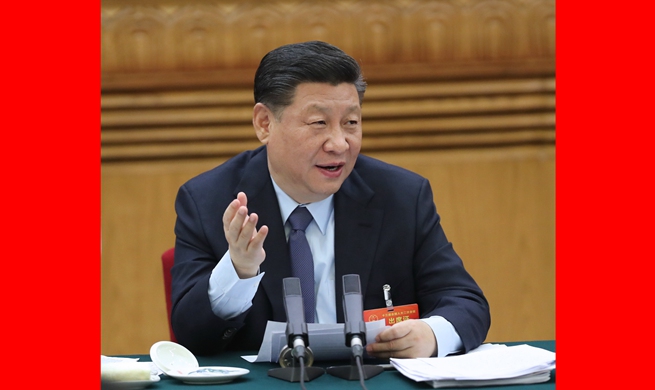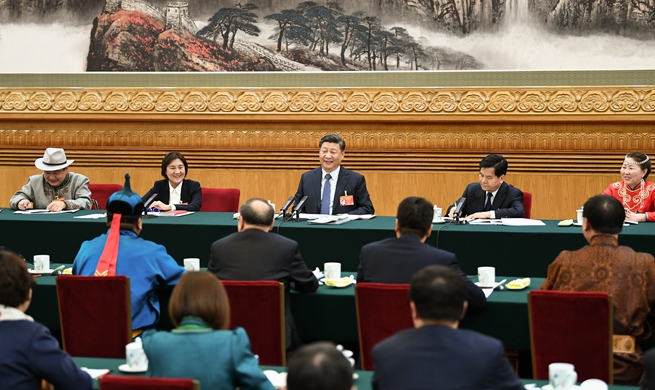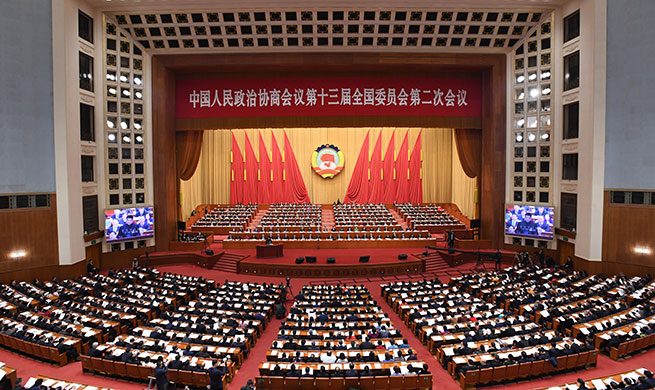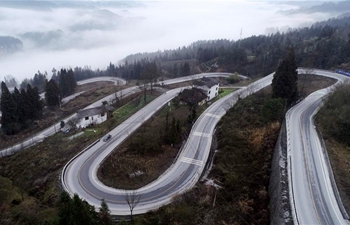by Dana Halawi
BEIRUT, March 9 (Xinhua) -- Analysts are not optimistic about reforms that were promised to be implemented by Lebanese new government in the aim of complying with CEDRE funds.
The CEDRE is an international conference which pledged to release 11 U.S. billion dollars in loans and donations for Lebanon on condition that the country makes serious reforms.
The new government should have started with quick reforms to send positive signals to the international community about its serious intentions to change the current status quo, Sami Nader, director of Levant Institute for Strategic Affairs in Lebanon, told Xinhua.
"Unfortunately, what happened instead is an attack against former Prime Minister Fouad Siniora by Hezbollah, accusing him of making extra budgetary spending," Nader said.
Head of Hezbollah's anti-corruption bureau held a press conference in late February, saying that billions of Lebanese pounds had disappeared.
The head also alleged that there were manipulated and missing financial documents that would put a lot of people in jail, including the former prime ministers who may be held accountable.
Nader emphasized the need to tackle corruption, saying Lebanon should be looking into the future in a bid to save the country.
"The government should start preparing the 2019 state budget by adopting measures that would lower the fiscal deficit by one percent point annually over five years as previously promised," Nader noted.
The quick solutions for the electricity problem which costs the treasury over 2 U.S. billion dollars yearly is must, he added.
The government should also approve the Public-Private-Partnership law which is essential for the development of Lebanon's crumbling infrastructure, job creation and the stimulation of Lebanon's economy, Nader said.
Hilal Kashan, chair of the Political Studies Department at the American University of Beirut, ruled out the possibility of conducting any reforms in Lebanon.
"Reducing spending means to clamp down on corruption and on patronage. The Lebanese system cannot live without patronage," he said.
Analysts interviewed by Xinhua believe that Lebanon is going to collapse if it does not implement real and quick reforms.
"If reforms do not get implemented or even get further delayed, we will go to economic deterioration for sure," Nader said.
Meanwhile, Khashan believes that Lebanon is heading towards a financial catastrophe within less than two years.
Economists have on many occasions said that Lebanon must conduct serious reforms to comply with CEDRE funds which, for them, constitutes the last chance for saving the country.
Moreover, Lebanese politicians, including President Michel Aoun and Prime Minister Saad Hariri, have repeated that Lebanon is serious about conducting reforms.
One positive step that happened lately is the announcement by Lebanese Finance Minister Ali Hassan Khalil that the 2019 state budget was sent to the council of ministers which will review it and send it to the parliament for approval by the end of May.
Other than financial reforms, CEDRE expects reforms in the refugee issue, the electricity sector, the participation of women in public and political life as well as the fight against all kinds of corruption.
France, which is one of the pioneers of CEDRE program, sent several delegations to Lebanon to urge Lebanese officials to start with necessary reforms.
Among the latest visits was that of French presidential envoy Pierre Dukan. According to local newspaper Al-Joumhouria, Dukan told Lebanese officials that this is their last chance to get the promised funds.
Dukan suggested a kind of a custody by France or international organizations to supervise the whole reform process in the country to make sure that the money is spent properly.
However, Khashan and Nader both rule out this possibility.
"I do not think that the Lebanese will go along with it and the French don't want this headache either. It will be seen as a major breach on sovereignty," Khashan said.
Meanwhile, Nader said that Hezbollah will not allow such interventions by the West.
"This is why Hezbollah does not feel great about CEDRE. They are worried that the West will intervene in Lebanon's affairs," he said.








